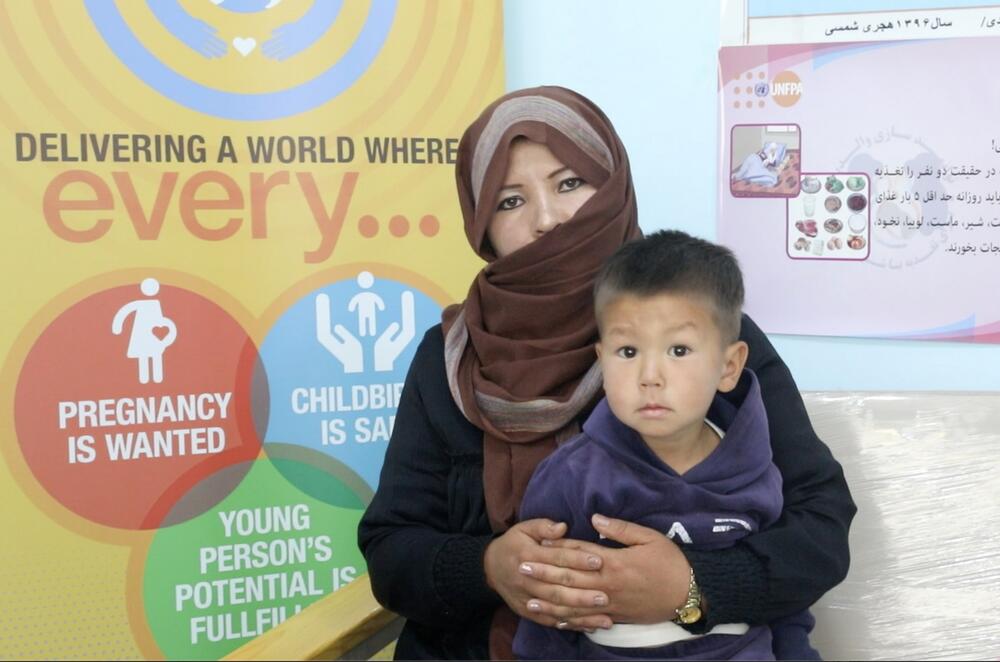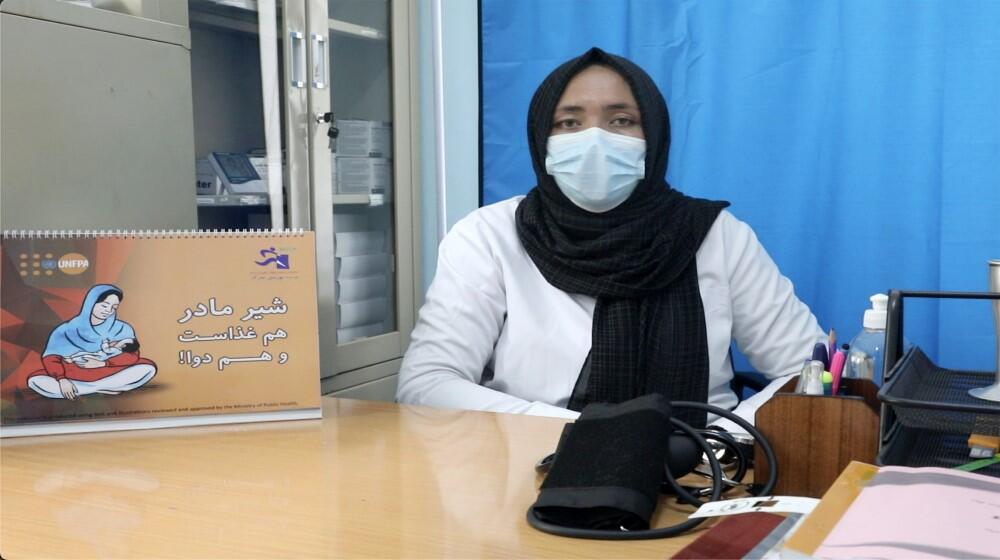Bamyan, Afghanistan – “Had I left, a mother or a baby could have died. I stayed because people, especially pregnant women, needed my support.”
Midwife Mariza Ahmadi had just been working as a midwife at the Ahangaran Family Health House for a year in August 2021 when her commitment to her lifesaving work was put to the test. At that time, Afghanistan descended into chaos due to the uncertainty of the situation following the withdrawal of foreign troops from the country.
Among the most affected were public health facilities, which have either closed or rendered non-functional due to the lack of health workers coming to work.
“I was also worried, but I could not leave because people needed our services… pregnant women were worried about where to deliver as health facilities were closing,” Ms. Ahmadi recalled. “So I did not close the Family Health House.”
One of the women who came to the clinic was 29-year-old Sughra who was nine months pregnant. She and her husband left Bamyan City to find a health facility in anticipation of the coming baby.
“A few days earlier, I went to the provincial hospital in Bamyan City, but the medical staff told me they were not sure whether they would stay and remain open in the coming days,” Ms. Sughra recalled.
The psychological stress she experienced during those days affected her pregnancy as she started having some contractions. Still uncertain about the availability of skilled care in the city, she decided to go to her father’s home in Ahangaran Village.
Riding a truck with her husband and sister-in-law, Ms. Sughra endured the three-hour trip on rough roads to reach the village, hoping they could find a place where she could safely deliver amidst the chaos happening throughout the country.
“On the way to Ahangaran Village, I was afraid I would give birth on the truck as I had contractions,” Ms. Sughra narrated. Luckily they safely reached her father’s house.
A few days later, Ms. Sughra started having labour pains. Wasting no time, she asked to be taken to the Family Health House in the village – the only available health facility they could go to.
“We came very early in the morning, but my labour lasted through the day. The midwife said if the baby does not come by 4 p.m., I have to be taken to the provincial hospital,” Ms. Sughra recalls.
However, when they contacted the provincial hospital in Bamyan City, they were told that the medical staff had left. The plan B was to proceed to the hospital, and Ms. Ahmadi would be the one to deliver the baby. She just needed the equipment at the hospital to manage possible complications.
Fortunately, Ms. Sughra’s labour progressed, and she delivered a healthy baby boy without any complications at 2 p.m. on 19 August 2021, which happens to be the day commemorating World Humanitarian Day.
Reflecting on that momentous day three years ago, Ms. Sughra said, “The labour was agonizing, but I was happy that we managed everything from the Family Health House. If the clinic did not exist during those days, only God knows what could have happened to me.”
Behind the safe delivery was the heroism of the midwife, who stayed and continued to deliver.
“That was a tough situation, but this Family Health House did not close for a single day during those times. I was also scared, but if I left, a mother or a baby could have died, and all our efforts to prevent maternal and newborn deaths would have gone to waste,” Ms. Ahmadi reflected.
Ms. Ahmadi made three other deliveries that week for women who had been displaced from other districts in Bamyan province.
“I stayed here because people needed my support and I had to serve them in such crucial situations. That was the reason I chose to stay and deliver,” Ms. Ahmadi explains. “Thank God that for the four years I have been working here, there have been no maternal deaths in this clinic.”
Ms. Sughra’s son is just a few days away from his third birthday, and she wishes him a bright future.

“My child’s name is Farhad, he was born in this clinic during those uncertain times. When he grows up I hope he can study so he can build a good future for himself and other people around him,” she said.
The Ahangaran Family Health House, currently funded by the US Bureau of Population, Refugee and Migration, and previously by the Government of Italy, is in a very remote location in Bamyan province and continues to serve the people living in surrounding isolated communities. With the dedicated support of health workers like Ms. Ahmadi, the clinic provides lifesaving reproductive, maternal, newborn, child, and adolescent health care.
In 2021, UNFPA had only 71 Family Houses in Afghanistan, which has grown more than sixfold to 477 today, reaching more than 5.2 million people in need of health services, especially women in remote and hard-to-reach areas.


